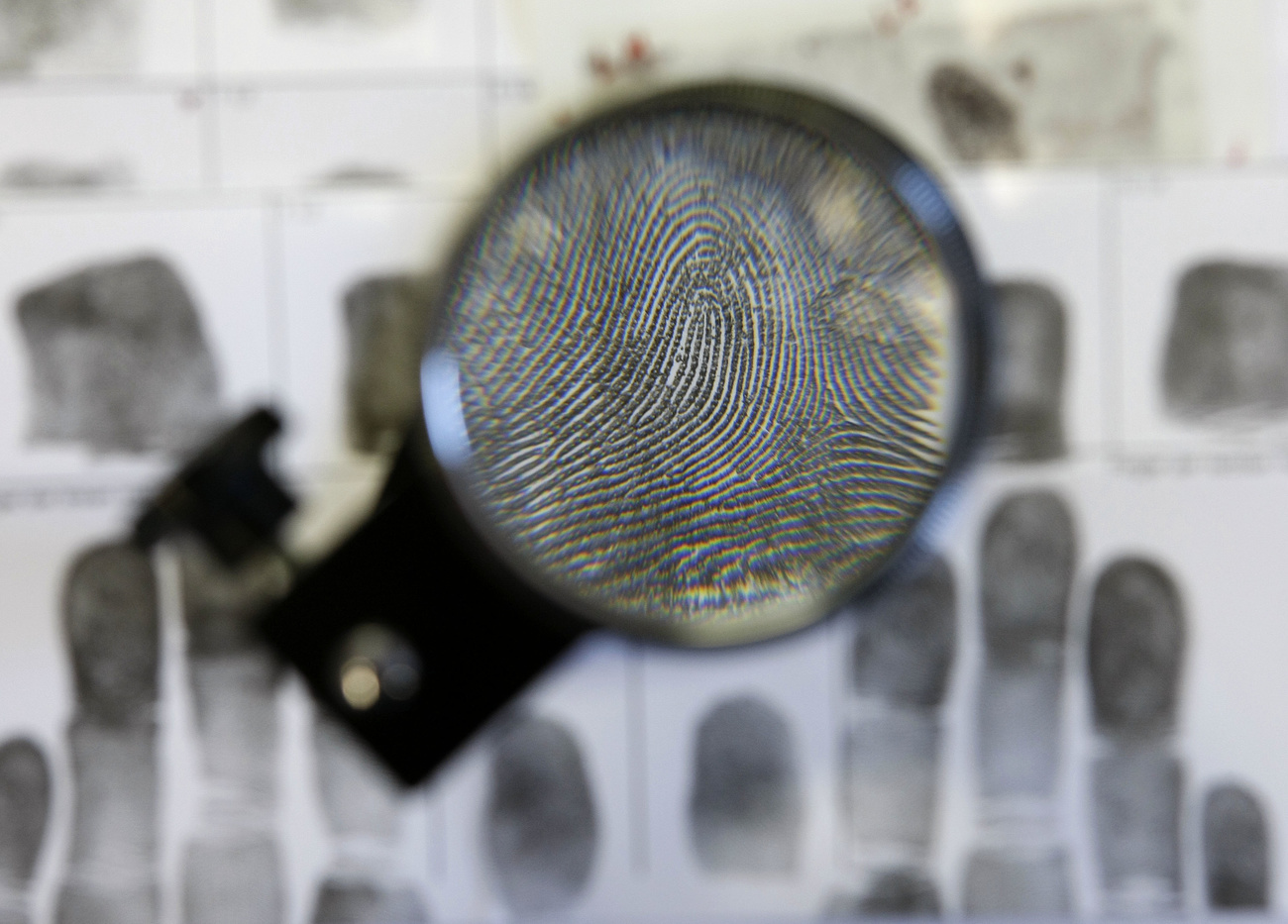
Swiss police to use new fingerprint and face technology to identify suspects

Swiss police should be able to start using “facial-comparison” technology alongside fingerprint scans to help identify suspects, after the government agreed to fund a new identification system.
The Federal Office of Police (fedpol) currently has access to an identification system that allows investigators to compare fingerprints and palm prints but not facial images. Such a system was considered too expensive in the past.
But the Federal Council on Thursday requested parliament to release CHF25 million to purchase the latest Automated Fingerprint Matching System (AFIS2026) that offers a fingerprint and palm print comparison system with a module allowing the comparison of facial images.
“This identification is of paramount importance in the fight against crime,” said the government in a statementExternal link.
+ Will Switzerland distance itself from the EU on mass surveillance?
“Technological developments have changed the game,” it said, adding that recognition rates and the reliability of the software have improved considerably.
“Facial image matching is a complementary method of biometric identification of people and traces from crime scenes, especially when fingerprint or DNA traces are lacking,” the government said.
+ Swiss state surveillance on the rise
The system works in the same way as with fingerprints: it allows investigators to compare an image of a suspect with identifying images contained in the AFIS system. Other sources, such as photos on identity documents or in social media cannot be used for comparison.
+ More Swiss trains fitted with video surveillance
The government insists that this is not a facial recognition surveillance system for which there is no legal basis in Switzerland. The facial image of suspects cannot be compared automatically and in real time using surveillance cameras in the Alpine state.
Fedpol currently processes more than 340,000 identification requests per year.

In compliance with the JTI standards
More: SWI swissinfo.ch certified by the Journalism Trust Initiative


























You can find an overview of ongoing debates with our journalists here . Please join us!
If you want to start a conversation about a topic raised in this article or want to report factual errors, email us at english@swissinfo.ch.